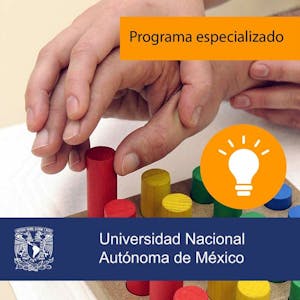Evaluación educativa is a specialized program offered by Universidad Nacional Autónoma de México, designed to equip educators with the knowledge and skills needed to enhance their assessment practices in various learning settings. The course focuses on the contemporary vision of learning as an active, constructive, and flexible process, emphasizing the importance of designing assessment tools that meet the diverse needs of learners. Throughout the program, participants will explore concepts such as formative assessment, diagnostic assessment, summative assessment, criteria for effective assessment, high-impact exams, and the legal, ethical, and social aspects of evaluation.
The course is divided into four modules, each addressing specific aspects of educational assessment. Module 1 delves into assessment in higher education, emphasizing the need for formative assessment and frequent feedback. Module 2 focuses on the quantitative approach to assessment, covering the design and use of instruments such as objective tests, checklists, quizzes, and rubrics. Module 3 explores qualitative assessment in higher education, providing insights into the use of qualitative instruments in fields such as biology, social work, psychology, and medicine. The final module culminates in a project where participants integrate their learning into a structured e-portfolio, showcasing their acquired knowledge and skills in the area of assessment for learning.
Certificate Available ✔
Get Started / More Info
Evaluación educativa offers a comprehensive program with four modules covering assessment in higher education, quantitative and qualitative assessment approaches, and culminating in a final project integrating the acquired knowledge and skills into a structured e-portfolio.
Module 1: This module provides insights into assessment in higher education, emphasizing the need for formative assessment, frequent feedback, and the design of assessment tools that align with the diverse needs of learners. Participants will engage in critical reflection on concepts such as formative assessment, diagnostic assessment, and criteria for effective evaluation.
Module 2: Delve into the quantitative approach to assessment, focusing on the design and use of instruments such as objective tests, checklists, quizzes, and rubrics. Through a series of videos, activities, and exercises, participants will gain practical knowledge to create pertinent, highly formative, and ethical assessments.
Module 3: Explore qualitative assessment in higher education, gaining insights into the use of qualitative instruments in fields such as biology, social work, psychology, and medicine. This module aims to equip educators with the tools to conduct qualitative evaluations effectively.
Module 4: The final module culminates in a project where participants integrate their learning into a structured e-portfolio, showcasing their acquired knowledge and skills in the area of assessment for learning. The project involves developing both quantitative and qualitative assessment instruments and engaging in peer assessment.
Creating a Student Profile in Google Docs
Frontières en tous genres is a comprehensive MOOC on political and cultural geography, exploring the complex nature of borders and their impact on social constructs....
Primate Conservation course explores global threats to primate populations, conservation categories, and environmental impacts. Gain insights into protecting our...
e-Learning Ecologies: Innovative Approaches to Teaching and Learning for the Digital Age offers a comprehensive exploration of transformative learning through technology....